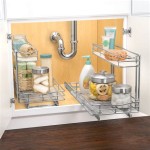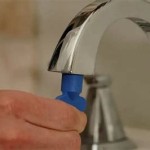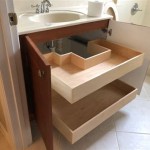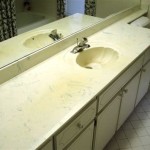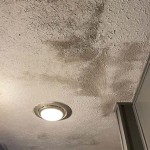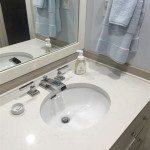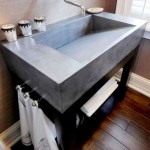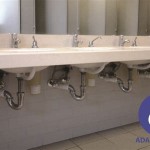Ants in Bathroom Sink Overflow Drainage: A Guide to Prevention and Removal
Discovering ants in the bathroom sink overflow drainage can be a distressing experience. Not only is it unpleasant to see these tiny creatures crawling around your bathroom, but it also signals a potential underlying plumbing issue. Ants are attracted to moisture and food sources, and a clogged or leaking overflow drain can provide both. This article will explore the causes of ants in bathroom sink overflow drainage, provide insights into why ants might be attracted to this location, and offer effective solutions for preventing and removing these unwanted guests.
Causes of Ants in Bathroom Sink Overflow Drainage
Understanding the reasons behind ant infestations in bathroom sink overflow drainage is crucial for devising effective solutions. Several factors contribute to this problem, including:
1. Moisture and Food Sources: The overflow drain is designed to prevent water from spilling over the sink's edge. However, if the drain is clogged or leaking, it can create a moist environment that attracts ants. Additionally, food particles or residues left in the sink or surrounding area can provide a food source for the ants. They can find crumbs, toothpaste, hair, and even soap residue, making the bathroom sink a desirable location for them.
2. Plumbing Issues: A faulty or damaged overflow drain can lead to leaks and water accumulation, creating an ideal breeding ground for ants. If the drain pipe is cracked or corroded, water might seep out, attracting ants. Furthermore, a slow-draining sink can also contribute to this problem. The water that pools in the sink creates a humid environment that attracts ants.
3. Accessibility: Ants are adept at finding small openings and crevices to access food and shelter. The overflow drain, with its small opening and often overlooked location, provides an easy entry point for ants. Once they gain access, they can establish a colony within the drainpipe or surrounding area, making it challenging to eliminate them.
Why Ants Are Attracted to Bathroom Sink Overflow Drainage
Ants are attracted to bathroom sink overflow drainage for several reasons:
1. Moisture: As mentioned earlier, ants need moisture for survival. The overflow drain, especially if leaking or clogged, provides a constant source of moisture. This is particularly true in bathrooms, which tend to be more humid than other parts of the house.
2. Food: Though it may seem unappetizing, ants can feed on various substances found in bathrooms. They are known to consume food scraps, hair, soap residue, and even toothpaste. The overflow drain often collects these residues, offering a readily available food source.
3. Shelter: The overflow drain's narrow opening and accessibility provide a safe and secluded spot for ants to build their nests. They can hide inside the drainpipe or surrounding area, making it difficult for them to be detected and removed.
Preventing Ants in Bathroom Sink Overflow Drainage
Preventing ants from entering your bathroom sink overflow drainage requires a multi-faceted approach, focusing on eliminating their food and moisture sources and improving the drainage system:
1. Cleanliness and Sanitation: The most effective preventive measure is to maintain a clean and dry bathroom sink area. Clean the sink regularly to remove food particles and residues. Ensure that the sink is completely dry after use, as excess moisture can attract ants. This involves mopping up any spills and wiping down the sink with a dry cloth.
2. Drain Maintenance: Regularly inspect the overflow drain for cracks, leaks, or blockage. If you find any issues, have a plumber fix them immediately. A leaking drain must be fixed to eliminate the moisture source. A clogged drain can be cleared using a drain cleaner or a plunger. For persistent clogs, professional help may be needed.
3. Sealing Entry Points: Examine the sink around the overflow drain for any openings or crevices. Seal these entry points with caulk or silicone sealant to prevent ants from gaining access. Pay attention to the area where the drainpipe connects to the sink, as this is a potential entry point for ants.
4. Use Ant Repellents: Using ant repellents around the sink area can discourage ants from entering. Natural repellents like peppermint oil, citrus peels, and diatomaceous earth are effective and environmentally friendly options. Commercial ant repellents can also be used, but follow the manufacturer's instructions carefully.
5. Professional Pest Control: If the ant infestation is severe or persistent, it's advisable to contact a professional pest control company. They can identify the type of ants and recommend the most effective treatment to eliminate the infestation.

Boise Idaho Pest Control Pestcom
Can Ants Come Up Through The Water Drain Quora

Boise Idaho Pest Control Pestcom

8 Tips On How To Get Rid Of Ants In The Bathroom Sink Kitchen

How To Get Rid Of Ants In Bathroom Drain City Pests

Can Ants Come Up Through Your Bathroom Drain Mantis Pest Solutions

What Bugs Can Live In Your Drains Terminix

Can Ants Come Up Through Your Bathroom Drain Mantis Pest Solutions

How To Get Rid Of Ants In Bathroom Drain City Pests

Function And Cleaning Of A Sink Overflow Hole Merry Maids
Related Posts
